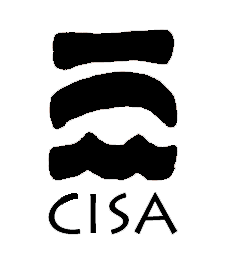AT HOME IN AN UNHOMELY WORLD: ON LIVING WITH WASTE
- Available online in Detritus - Volume 06 - June 2019
- Pages 4-10
Released under CC BY-NC-ND
Copyright: © 2019 CISA Publisher
Abstract
Modern-day waste, such as the microplastics in the water, particulate matter in the air and chemical waste in the soil, distorts notions of inner and outer, of familiarity and strangeness, of own and other, and turns our world into an unhomely (uncanny) place. This paper explores what it means to live-with waste instead of trying to make it go away. When we explore the ontology of waste, we find that waste is never unambiguously (in the) present and invites us to take “being” as haunted and explore a “hauntology” (Jaques Derrida) of waste. This hauntology refers to being as ecological being or “being ecological” (Timothy Morton) and invites us to inquire after the “eco” in ecology: the Greeks oikos (home). When, as this paper suggests, we take cohabitation as a starting point, it becomes unclear who is the host and who has come to visit. Whose home takes central stage? And whose world? This paper argues we need to let go of an overarching concept of “world” and instead become familiar with (our) “habitat” and in so doing open it up to the non-humans we share our “home” with. Sticking with the metaphor of (un)home(liness) this paper argues that our house is a haunted house and explores ways in which we can become hospitable with these (unwelcome) guests.Keywords
Editorial History
- Received: 14 Jan 2019
- Revised: 10 Jun 2019
- Accepted: 17 Jun 2019
- Available online: 28 Jun 2019
References
Asma, S. T. (2009) On Monsters. An Unnatural History of Our Worst Fears. Oxford: Oxford University Press
Bamber, J.L., M. Oppenheimer, R.E. Kopp, et al. (2019) ‘Ice sheet contributions to future sea-level rise from structured expert judgement’, PNAS, 116(23): 11195-11200
Bell, L. (2018) ‘Places, people and processes in waste theory: a global South critique’, Cultural Studies, 33(1): 98-121
Bennett, J. (2010) Vibrant Matter. A political ecology of things. Durham and London: Duke University Press
Catlin, J. and Y. Wang (2013) ‘Recycling gone bad: When the option to recycle increases resource consumption’, Journal of Consumer Psychology, 23(1): 122-127
Cózer, A, F Echevarría, J.I. González-Gordillo et al. (2014) ‘Plastic debris in the open ocean’, PNAS USA, 111(28), 10239-10244
Davies, T. (2019) Slow violence and toxic geographies: ‘Out if sight’ to whom?’, Environment and Planning C: Politics and Space, 0(0): 1-19
Derrida, J. (1985) The Ear of the Other. Otobiography, Transference, Translation. New York: Schocken Books
Derrida, J. (2000) Of Hospitality. Stanford: Stanford University Press
Derrida, J. (2010 [1993]) Specters of Marx. The State of Debt, the Work of Mourning and the new International. London: Routledge
Derrida, J. (2017) The Beast and the Sovereign. Volume 2. Chicago: Chicago University Press
Divoudi, S. (2009) ‘Governing Waste. Introduction to the special issue’, Journal of Environmental Planning and Management, 52(2): 131-136
Doeland, L. (forthcoming 2020) ‘On Hauntology. A Turn to the Spectre of Waste’, in R. Ek and N. Johansson (eds), Opening the Bin: Perspectives on Waste from the Social Science and Humanities. Newcastle upon Tyne: Cambridge Scholars Publishing
Freud, S. (2000 [1919]). ‘Het ‘Unheimliche’ [The Uncanny], in Verzamelde werken, Cultuur en Religie 2. Boom: Meppel
Gaston, S. (2013) The Concept of World from Kant to Derrida. London and New York: Rowman & Littlefield
Gregson, N. and M. Crang (2010) Environment and Planning A, 42, 1026-1032
Hawkins, G. (2009) ‘More-than-Human Politics: The Case of Plastic Bags’, Australian Humanities Review, 46: 43-55
Hall, L.S., P.R. Krausman and M.L. Morrison (2007) ‘The Habitat Concept and a Plea for Standard Terminology’, Wildlife Society Bulletin, 25(1): 173-182
Houlihan, J., T. Kropp, R. Wiles et al. (2005) Body Burden: The Pollution in Newborns. Report, The Environmental Working Group, Washington, DC and Oakland, CA, July 14
Kirk, D.A., A.C. Park and A.C. Smith, A.C., et al. (2018) ‘Our use, misuse and abandonement of a concept: Whither habitat?’, Ecology and Evolution, 8: 4197-4208
Klein, N. (2014) This Changes Everything. Capitalism vs. The Climate. New York: Simon & Schuster
Kontrick, A.V. (2018) ‘Microplastics and Human Health: Our Great Future to Think About Now’, Journal of Medical Toxicology, 14(2): 117-119
Kuletz, V.L. (1998) The Tainted Desert. Environmental Ruin in the American West. London and New York: Routledge
Latour, B. (1993) We Have Never Been Modern. Cambridge, Massachusetts: Harvard UP
Latour, B. (2004) ‘Whose Cosmos, Which Cosmopolitics?’, Common Knowledge, 10(3): 450-462
Latour, B. (2005) ‘From Realpolitik to Dingpolitik’, in B. Latour and P. Weibel (eds) Making Things Public: Atmospheres of Democracy, 4-31. Cambridge and Karlsruhe: MIT Press and ZKM Karlsruhe
Latour, B. (2011) ‘Love Your Monsters.Why we must care for our technologies as we do our children’, Breakthrough Journal, 2: 19-26
Latour, B. (2018) Waar kunnen we landen. Politieke oriëntatie in het Nieuwe Klimaatregime [Down to Earth. Politics in the New Climate Regime]. Amsterdam: Octavo publicaties
Lerner, S. (2010) Sacrifice Zones. The Front Lines of Toxic Chemical Exposure in the United States. Cambridge, Massachusetts, and London, England: The MIT Press
Madsen, M. (2010) Into Eternity. A Film for the Future. Denmark: Dogwoof
Masschelein, A. (2011) The Unconcept. The Freudian Uncanny in Late-Twentieth Theory. Albany, State University of New York Press
Miéville, C. (2012) ‘Theses on Monsters’, Conjunctions, 59: 142-144
Millington, N. and M. Lawhon (2018) Progress in Human Georgraphy: 1-20
Moss, R. and Galison, P. (2015) Containment. USA: ro*co films
Morin, E-M. (2015) ‘The Spacing of Time and the Place of Hospitality: Living Together According to Bruno Latour and Jacques Derrida’, Parallax, 21(1): 26-41
Morton, T. (2007) Ecology Without Nature. Rethinking Environmental Aesthetics. Cambridge, Massachusetts, and London, England: Harvard UP
Morton, T. (2013) Hyperobjects. Philosophy and Ecology after the End of the World. Minneapolis: University of Minnesota Press
Morton, T. (2017) Humankind: Solidarity with Non-Human People. London: Verso Books
Morton, T. ( 2018) Being Ecological. London: Pelican Books
Moore, S. A. (2012) ‘Garbage matters. Concepts in new geographies of waste’, Progress in Human Geography, 36(6): 780-799
Reno, J. (2015) ‘Waste and Waste Management’, Annual Review of Anthropology, 44: 557-572
Reno, J. (2018) ‘What is Waste?’, Worldwide Waste: Journal of Interdisciplinary Studies, 1: 1-10
Royle, N. (2003) The Uncanny. Manchester: Manchester University Press
Serres, M. (2011) Malfeasance. Appropriation Through Pollution? Stanford: Stanford University Press
Slater, P. (1990 [1970]) Pursuit of Loneliness. American Culture at the Breaking Point. Boston: Beacon Press
Taylor, A. (2008) Examined Life. New York: Zeitgeist Films
Tsing, A., H. Swanson, E. Gan and N. Bubandt (eds) (2017) Arts of Living on a Damaged Planet. Minneapolis and London: University of Minnesota Press
Ureta, S. and P. Flores (2018) ‘Don’t wake up the dragon! Monstrous geontologies in a mining waste impoundment’, Environment and Planning D: Society and Space, 36(6): 1063-1080
Valenzuela, F. and S. Böhm (2017) ‘Against wasted politics: A critique of circular economy’, Ephemera, 17(1): 23-60
Winterson, J. (2005) Weight. The Myth of Atlas and Heracles. Edinburgh: Canongate
World Economic Forum (2018) ‘Global waste could increase by 70% by 2050, according to the World Bank’. Retrieved from https://www.weforum.org/agenda/2018/09/world-waste-could-grow-70-percent-as-cities-boom-warns-world-bank/
Wright, S.L and F.J Kelly (2017) ‘Plastic and Human Health: A Micro Issue?’, Environmental Science & Technology, 51(12): 6634-6647
Wyck, P. van (2005) Signs of Danger. Waste, Trauma and Nuclear Threat. Minneapolis and London: University of Minnesota Press
Yapp, R.H. (1922) ‘The Concept of Habitat’, Journal of Ecology, 10(1): 1-17




